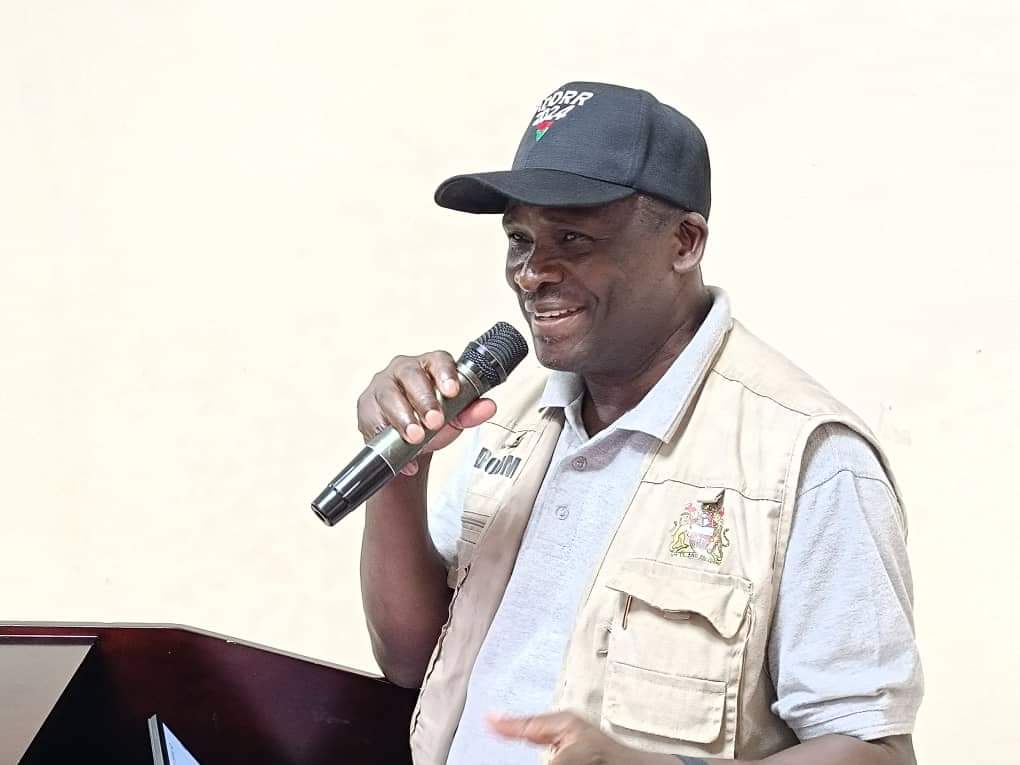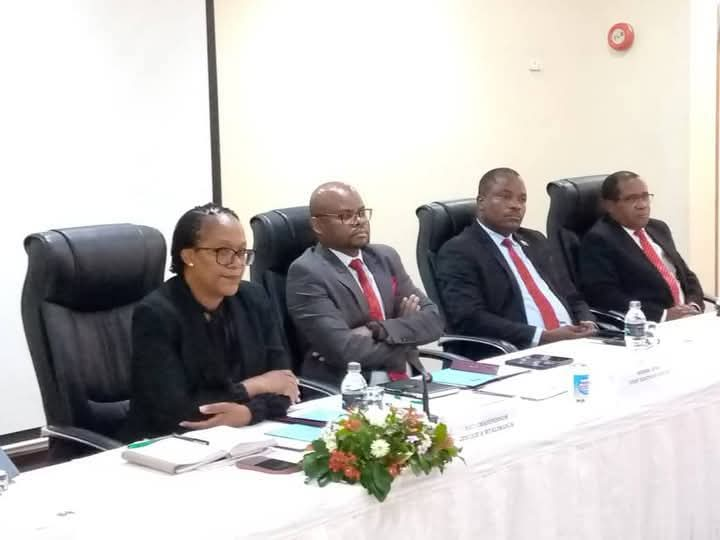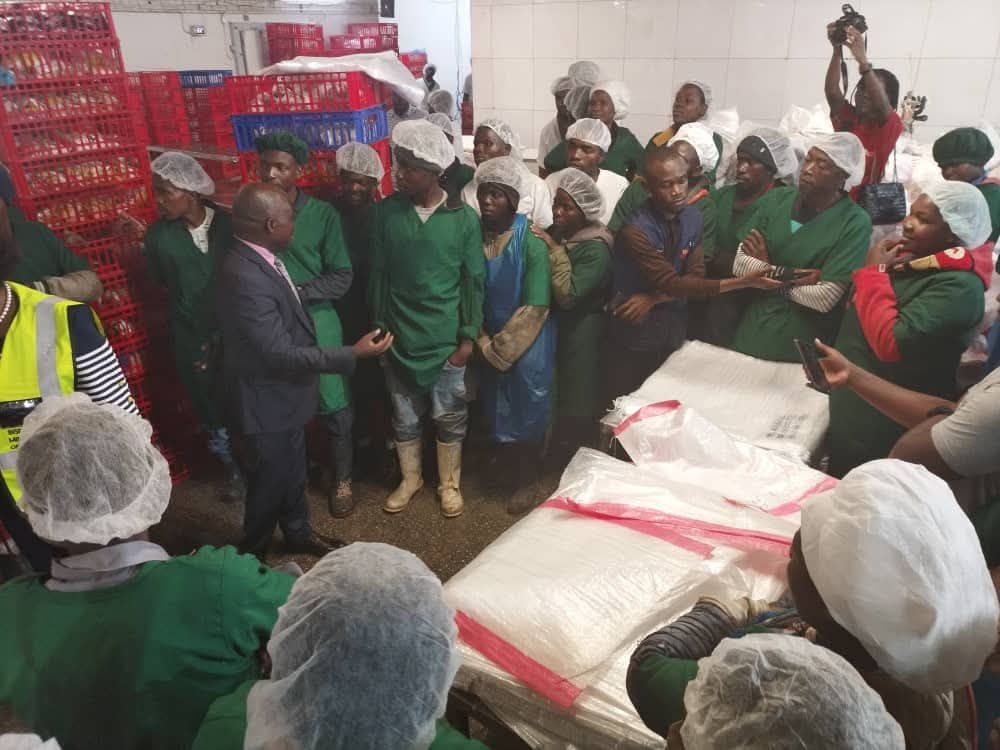By Burnett Munthali
Today, Commissioner for Disaster Management Affairs, Rev. Charles Kalemba, emphasized the urgent need for Malawi to adopt a proactive approach in managing disasters, stressing that such a shift would require the engagement and collaboration of multiple sectors. His remarks were made during the launch of a four-day interdisciplinary learning program in Blantyre, focused on integrating Disaster Risk Reduction (DRR) and Climate Adaptation into development planning and budgeting.
Kalemba highlighted the critical role that stakeholders from diverse sectors play in building resilience against climate-induced risks, which Malawi has increasingly faced in recent years. He explained that recent changes to the law aim to transform Malawi’s disaster response strategy from a reactive approach to a preventative one, driven by a focus on risk assessment and early intervention.
“The new law wants Malawi to move from a country that waits for things to happen and then start running around, to a country that is able to assess risks and take remedial actions,” Kalemba stated. “To achieve this, we have to engage various stakeholders, such as city councils, the Ministry of Agriculture, and others.”
The initiative, led by the Department of Disaster Management Affairs (DoDMA) in partnership with the United Nations Development Programme (UNDP), underscores the importance of embedding disaster risk reduction into national development plans and budgets. This collaborative approach is essential to build resilience and protect communities from the escalating impacts of climate change.
The importance of a proactive strategy
Malawi has faced severe floods, droughts, and cyclones over the past decade, resulting in widespread displacement, loss of life, and economic damage. By embedding DRR into planning, the country aims to reduce vulnerability to these disasters and enhance the ability of communities to adapt to climate-related challenges.
UNDP Deputy Resident Representative Challa Getachew, also present at the event, underscored the economic advantages of proactive disaster management. “The country will save more money if it becomes proactive in preventing disasters,” Getachew noted, explaining that preventing disaster impacts is significantly less costly than emergency response and recovery efforts.
Building resilience through stakeholder collaboration
A comprehensive disaster management strategy necessitates contributions from various sectors, including city councils, agriculture, health, and education. City councils, for example, play a vital role in planning and zoning regulations, which can help prevent flood-prone developments and mitigate the impact of natural disasters on urban areas. Similarly, the Ministry of Agriculture can contribute by promoting climate-resilient farming practices that reduce the risk of crop failures and food insecurity during extreme weather events.
Kalemba emphasized that each sector brings unique expertise and resources essential for effective disaster risk reduction. By coordinating efforts, stakeholders can implement sustainable solutions that protect both lives and livelihoods.
Integrating disaster management into development planning
DoDMA’s initiative, which focuses on aligning DRR and climate adaptation strategies with development planning, aims to create a framework that ensures Malawi’s development efforts are resilient to climate-related risks. Integrating disaster management into budgeting will help institutionalize DRR efforts, making it an essential part of national planning and governance.
This proactive model reflects a paradigm shift in disaster management, moving from ad-hoc emergency responses to strategic, preventive action. By incorporating disaster management into development planning, Malawi can make long-term investments that build resilience across communities and reduce the socio-economic impact of future disasters.
A call for nationwide support and action
Rev. Kalemba’s call to action underscores the need for government agencies, NGOs, the private sector, and local communities to unite around a common goal of reducing disaster risk. The initiative is an invitation for all sectors to recognize their role in disaster preparedness and to collaborate to create a safer, more resilient Malawi.
As the nation takes steps toward a proactive disaster management approach, continued commitment from all levels of society will be crucial. This collaborative model offers a pathway to sustainability, where risk reduction becomes a shared responsibility and a priority in Malawi’s journey towards resilience.
Conclusion
The interdisciplinary learning program launched by DoDMA and UNDP marks a significant step forward in reshaping Malawi’s approach to disaster management. With the collective efforts of stakeholders across sectors, Malawi has the opportunity to transform from a country that responds to disasters to one that anticipates and mitigates them. Through proactive planning and collaboration, Malawi can safeguard its people and create a sustainable future in the face of increasing climate challenges.




